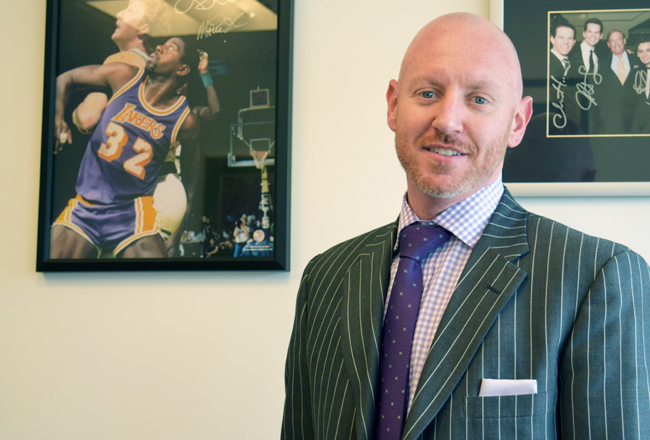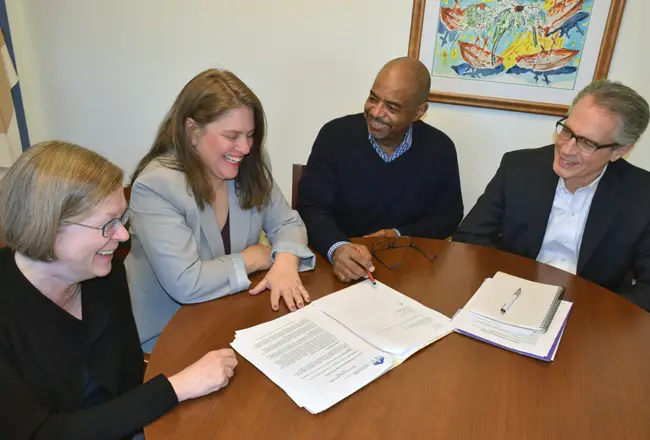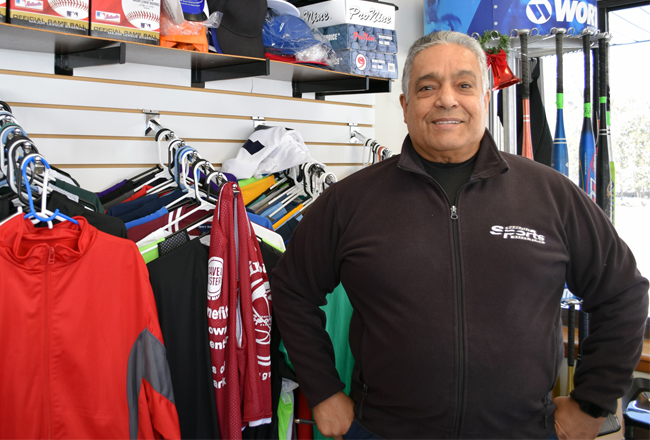If one were to judge people by social media postings, it would seem there is an excessive surplus of overconfident people. The endless volume of selfies and postings that boast about ongoing fun times would suggest that no one has a care in the world. But Christopher J. Wirth doesn”™t buy that.

“A lot of people have self-doubt or what I refer to as paralysis by analysis,” said Wirth, president and CEO of the Greenwich-based consultancy No Quit Living. “But if you look at people”™s social media world, typically they are very different from their real world. People chase a like, a retweet or a follow, as opposed to showing what they really are. A lot of people only post the best things. If you have a terrible day, you are not going to go out and say, ”˜Oh, my day stinks.”™ You are going to take a selfie at the gym.”
Forcing people to face their self-doubts is a primary focus of No Quit Living, which Wirth founded in 2014 as a coaching company to encourage individuals in their pursuit of professional goals. Wirth said that it is too easy for self-doubters to assign blame for their woes elsewhere without acknowledging that the problem sometimes starts at home.
“Most people don”™t realize the simplicity of holding yourself to a level of accountability,” he said.
Acknowledging there is a problem that needs to be addressed is a first step, Wirth said, but many people are often stymied by dysfunctional workplaces that have little room for encouraging innovation among its staff. Over the past year-and-a-half, Wirth expanded his consultancy to challenge companies and nonprofits to consider whether the obstacles they face are of their own making.
“We ask people: ”˜What”™s the mission statement from your company and what”™s your personal mission on where you stand?”™” he said. “An issue for many companies is an us-versus-them divide between management and workforce, where a lot of employees feel like they”™re working for somebody. One of the things we like to do is knock down the walls and figure out how we can work together, so it is ”˜we”™ rather than ”˜us-versus-them.”™ The number one reason people leave companies is not money or pay raises, but because people feel neglected.”
Wirth said that the corporate world has become more cognizant of these issues and is trying to address them. “We”™re seeing a trend of companies realizing that they need to invest in their employees,” adding that this ultimately helps a company”™s image and bottom line by not carrying the reputation of being the place known for its high turnover and low morale.
In many ways, No Quit Living is the latest career step that enables Wirth to pursue what he described as a passion for helping others achieve their best. A 2001 graduate of Washington College in Chesterton, Maryland, with a Bachelor of Arts degree in business and drama, he was on the school”™s basketball team and pursued sports coaching with stints as assistant men”™s basketball coach at the University of Bridgeport and head boys”™ varsity basketball coach at Rye Country Day School. Simultaneously, he has worked as a wealth management planner at First Financial Resources in Greenwich, a firm founded by his father Kenneth Wirth.
Wirth has parlayed his No Quit Living consulting in speaking engagements at business conferences across the Northeast and California. In early 2017, while preparing for a speech at a Boston hotel, Wirth began chatting with the audio-video technician for the event about the possibility of setting up a podcast. That technician, Wes Yee, encouraged Wirth to explore that channel, and the duo created the No Quit Living podcast that launched in April 2017 and recently recorded its 100th episode.
“We”™ve had over 115,000 total downloads and we average between 1,000 to 2,500 downloads per episode,” Wirth said, adding that his podcast can be heard on iTunes, Google Play and Stitcher Radio. “It”™s really exciting.”
Wirth”™s podcast guests have included former Walt Disney World Resort executive Lee Cockerell, best-selling author Tucker Max and designer/blogger Dani DiPirro. In each episode, Wirth asks his guests “What is your no quit story?” and “What happened when you had the opportunity to give up and give in?” After each episode, he has received feedback from shocked and surprised listeners.
“The emails say, ”˜This is kind of what I”™m going through ”” I had no idea this person what going through that, too,”™” he said.
While Wirth markets himself as a problem solver, even he has problems. He freely admits that he consults with his own coaches to ensure that he”™s on the right track.
“It is really humbling to lay your cards out and ask for advice.”






















